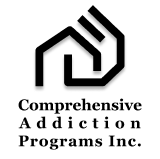A New Beginning: Entering Residential Treatment
For individuals grappling with substance abuse, taking the courageous step of seeking professional help is the first stride towards reclaiming their lives. Among the various treatment options available, residential substance abuse treatment stands as a comprehensive and transformative approach. In this blog post, we will explore the journey of entering residential substance abuse treatment, shedding light on the benefits, challenges, and the hope it offers for a brighter, sober future.
The Decision to Seek Help
The decision to enter residential substance abuse treatment is not an easy one. It requires profound introspection, courage, and a willingness to embrace change. Acknowledging the need for professional help is a powerful moment of self-awareness, signaling a readiness to break free from the shackles of addiction and embark on a journey of healing.
The Safe Haven of Residential Treatment
Residential substance abuse treatment provides a safe and supportive environment for individuals to focus solely on their recovery. By residing on-site, away from triggers and distractions, participants can immerse themselves fully in the therapeutic process. This 24/7 support fosters a sense of community and allows for continuous access to professional care, ensuring that clients receive the attention they need at any time.
Comprehensive and Individualized Care
One of the significant advantages of residential treatment is its comprehensive and individualized approach. Treatment plans are tailored to meet the unique needs and circumstances of each individual. A multidisciplinary team of medical professionals, therapists, and counselors collaborate to address the physical, emotional, and psychological aspects of addiction.
Therapy and Healing
Therapy lies at the heart of residential substance abuse treatment. Various evidence-based therapies, such as cognitive-behavioral therapy (CBT), individual counseling, group therapy, and family therapy, help individuals uncover the root causes of their addiction, develop coping strategies, and address co-occurring mental health issues.
Community and Connection
The sense of community that emerges within residential treatment facilities can be transformative. Individuals share their stories, offer support, and find solace in the knowledge that they are not alone in their struggle. This sense of connection can be profoundly healing, providing individuals with a renewed sense of hope and belonging.
Learning Life Skills
Residential treatment programs also focus on equipping individuals with essential life skills that support long-term sobriety. These skills may include stress management techniques, effective communication, problem-solving, and healthy coping mechanisms. By arming individuals with practical tools, they gain the confidence to navigate life's challenges without turning to substances.
Addressing Relapse Prevention
Residential treatment programs prioritize relapse prevention strategies. Participants are equipped with the knowledge and skills to recognize triggers, avoid high-risk situations, and manage cravings. The goal is to prepare individuals for life after treatment and empower them to sustain their sobriety.
Challenges and Triumphs
Entering residential treatment is not without its challenges. It can be emotionally intense as individuals confront their past traumas and the consequences of addiction. However, these challenges are met with unwavering support, guidance, and encouragement from the treatment team. Every triumph, no matter how small, is celebrated, reinforcing the belief that recovery is possible.
A Journey of Hope and Healing
Residential substance abuse treatment is a transformative journey, marked by personal growth, healing, and the embrace of a new, sober way of life. It is a testament to the strength of the human spirit and the power of professional care. With each passing day, individuals in residential treatment move closer to a brighter future, one where they can live authentically, free from the burden of addiction.
Conclusion
Entering residential substance abuse treatment is not just a physical relocation; it is a commitment to transformation and a testament to the indomitable spirit of the human heart. Residential treatment centers provide a nurturing and empowering environment, where individuals can heal, grow, and rediscover their true selves. As they take this bold step towards recovery, they are enveloped in a community of support, united in the belief that hope and healing are within reach. By embracing the journey of residential treatment, individuals pave the way for a life of sobriety, purpose, and endless possibilities.
